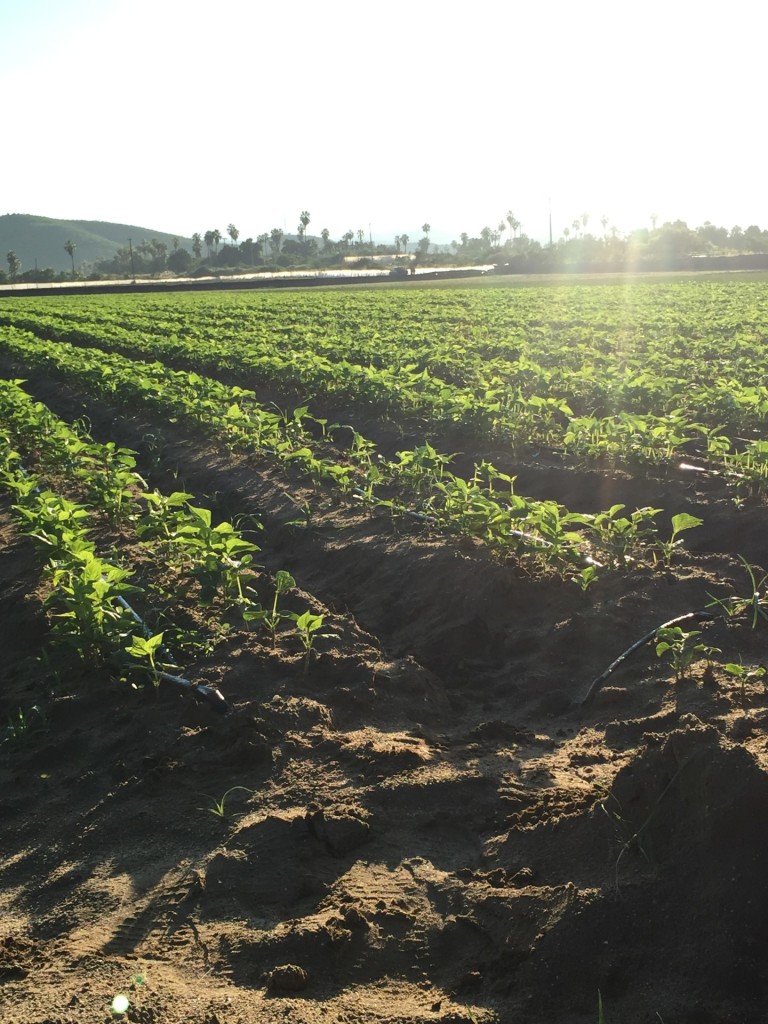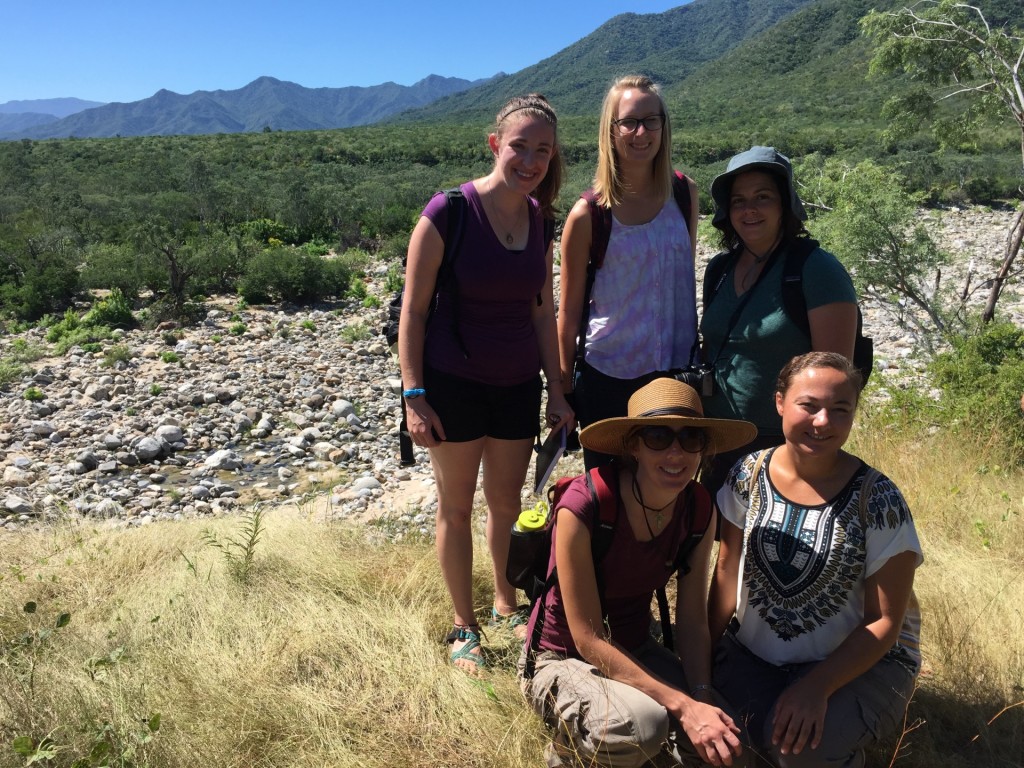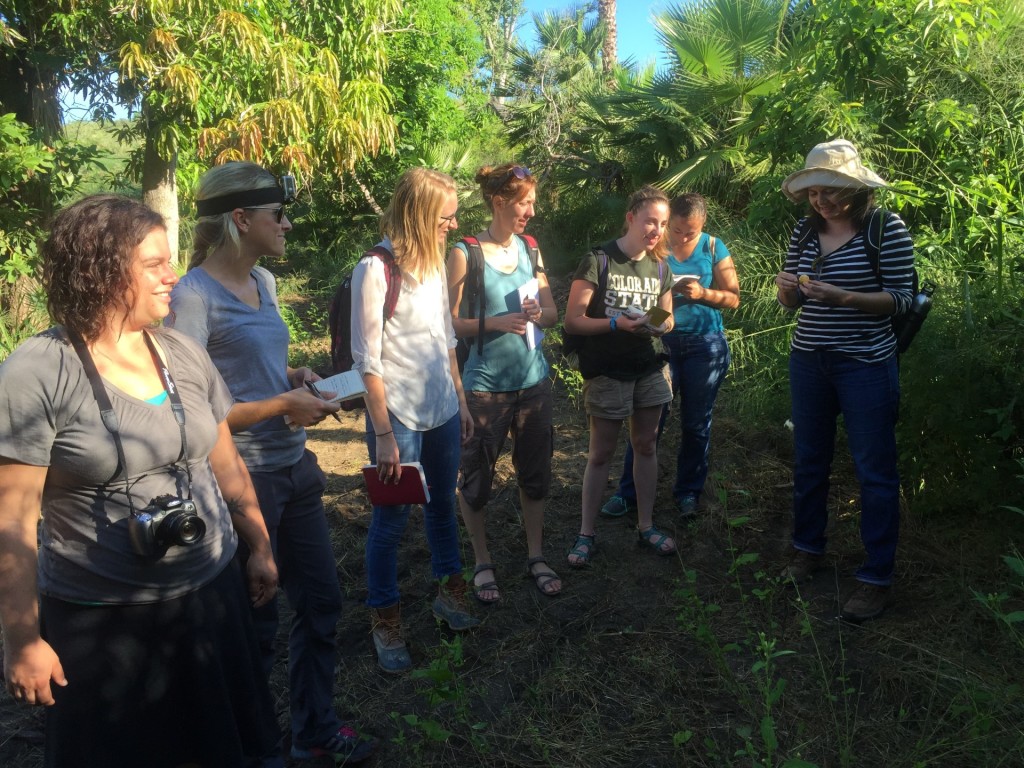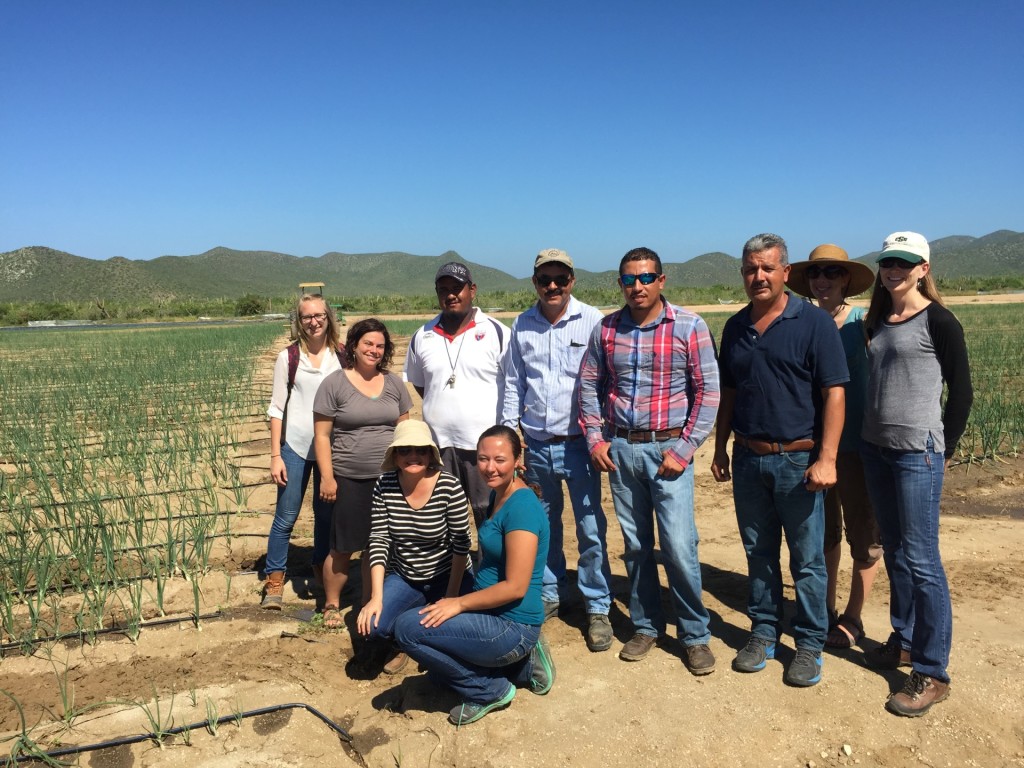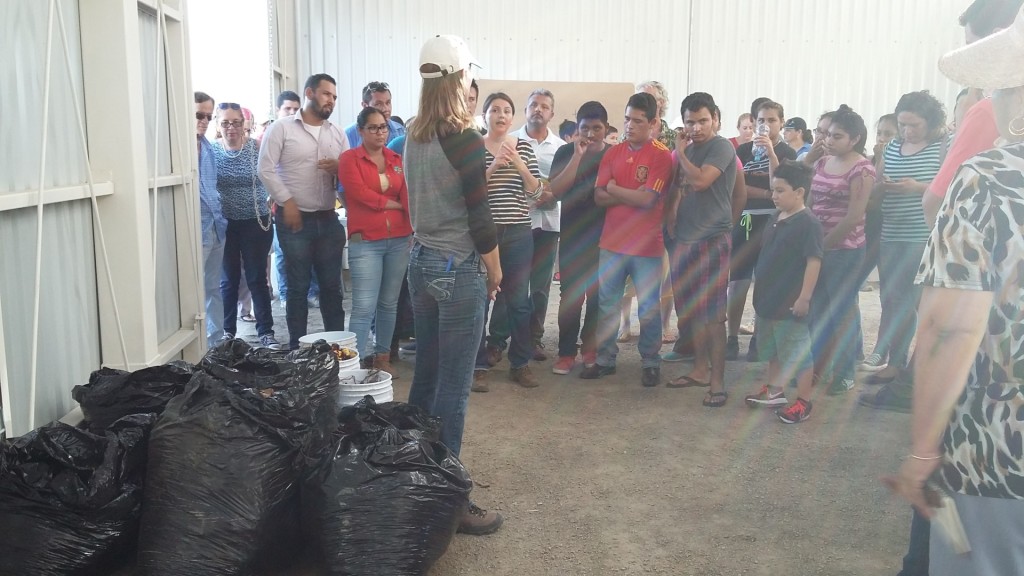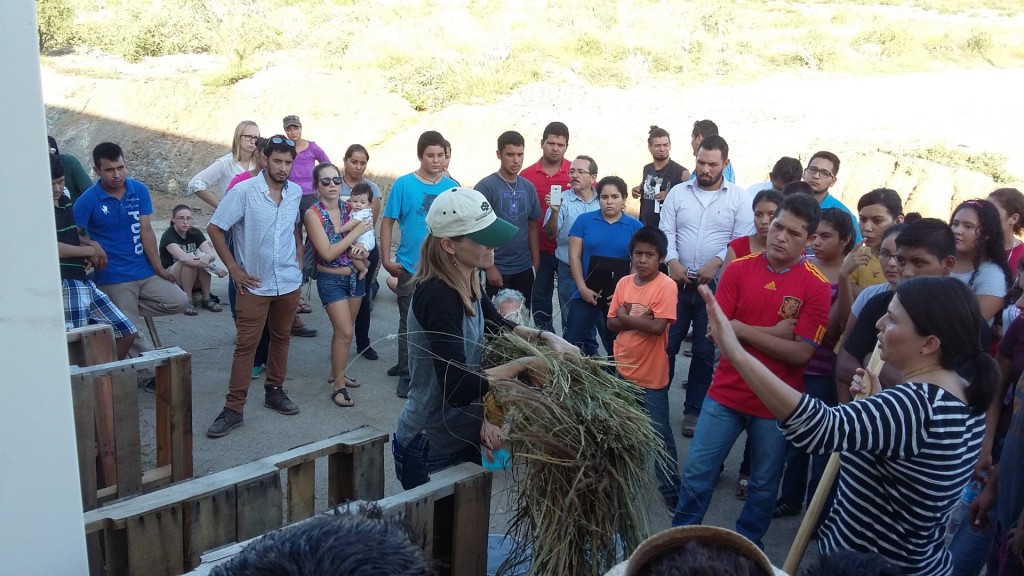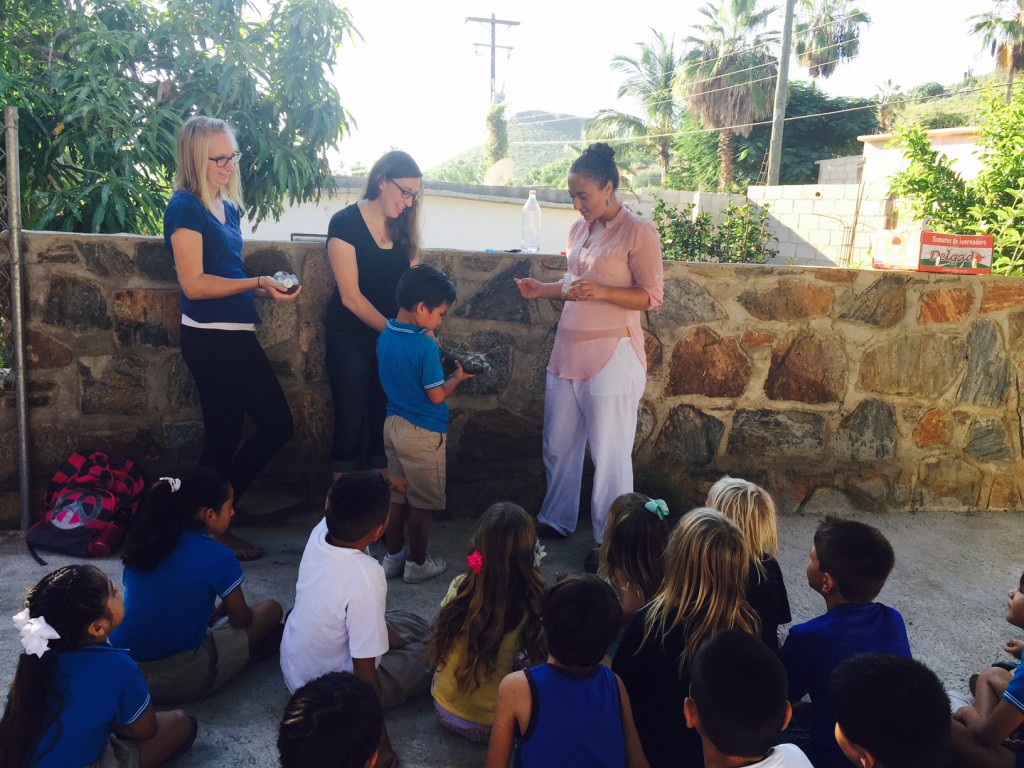[Para leer en español, haga clic aquí]
A trip that took them 1,200 miles out of the classroom gave a CSU sustainable agriculture class the unique experience of applying their lessons in a new environment.
CSU faculty Addy Elliott, Suellen Melzer-Drinnen, and Zach Johnson took five students to the Colorado State University Todos Santos Center in Baja Sur California, for a six-day trip to share ideas, experiences and challenges surrounding sustainable agriculture. The group visited agricultural operations that have been running for decades and have worked to overcome the challenges inherent to the region and industry.
“In Todos Santos, I experienced for the first time a truly sustainable farm,” Elliott said after visiting a farm that has been in operation for 14 generations, since the founding of Todos Santos. “You can read case studies, but to stand on the soil is a tremendous experience.”
The class arrived in October, during an unusual precipitation event that helped usher an equally unusual second-spring season for the Baja Peninsula. Just as the rains sprouted valleys of wildflowers, the learning experience allowed the students to develop new ideas and discover ways to apply theory to a dynamic world.
Tabitha Covey, a student in the sustainable agriculture class, said the trip provided her with many learning opportunities:
“The opportunity for students to gain intercultural competency and perform research in Mexico is immense,” Covey said. “The Todos Santos community is excited for collaboration and willing to participate in our projects, creating an atmosphere that is great for students and researchers who have projects that are well-suited for the area.”
Goal of better understanding
The overarching goal of the trip was to better understand the Todos Santos agriculture system and the challenges and opportunities that exist. “Because of the sustainability focus of the class, students viewed their experiences through a multi-faceted lens,” Elliott said, “pillars of which are social, economic, and environmental.”
While in Todos Santos, the CSU students visited conventional and certified organic farms and ranches; met with a farm cooperative representative to discuss marketing strategies for local producers; visited a local organization that houses 72 youth to allow them access to public schooling during the week; and facilitated a community composting workshop that more than 60 community members attended. Of the community workshop attendees, more than 20 were local youth, and it was working with those students that revealed a new passion for the profession, Elliott said.
“To see so many students excited about education related to sustainability made me realize the opportunities that exist to learn from and share with people across the globe,” Elliott said. “My favorite part of my job is teaching.”
The group found that despite the 1,000-plus miles, and the cultural and language differences that separate Todos Santos and Fort Collins, many methods and lessons translate well. In Todos Santos, agriculture production is aided by technology and partnerships, and the issues – like pests – are the same. Business issues are also translatable. As students discovered, there is a consumer desire and a market for organic food in Todos Santos but an undesirable price point, a problem similar to what is seen in the United States.
For Elliott, the experience has cemented the viability of the CSU Todos Santos Center’s ability to engage the local community and to provide CSU students with multi-dimensional learning experiences. Having global conversations that foster information exchange and critical thinking empower Todos Santeños and CSU students to develop even better agricultural systems that better utilize our shared resources.
“This trip taught me that the Todos Santos community is curious, and that translates to an opportunity to share expertise and learn from one another,” Elliott said. “I also see this center being a place where CSU students can learn about small-scale community agriculture during Colorado’s winter months.”
Covey said her trip as a student gave her new insight into sustainable agriculture.
“The opportunity to witness this form of agriculture is rare and precious and I am amazed that it was facilitated by CSU’s staff and local folks from Todos Santos who are invested in our learning process,” she said. “I feel as though I wouldn’t have had the ability to see this form of farming firsthand without the expert guidance of all involved, and I am so grateful to have witnessed what is possible.”
Next up for the CSU students is back to the classroom where they will select an agricultural sustainability opportunity they found in Todos Santos, develop a plan to capture that opportunity, and present a proposal that describes their conclusion. The class will host a campus-wide seminar during the spring 2016 semester to showcase their experiences and projects.
About the CSU Todos Santos Center
The Colorado State University Todos Santos Center is the university’s first international location and is core to CSU’s mission of teaching, research, service, and outreach.
The Center provides opportunities for CSU students and Baja California Sur residents to collaborate with local partners and businesses to identify needs, conduct research, and produce impactful outcomes.
CSU’s vision in Todos Santos is to cultivate generations of global citizens and to be a part of creating thriving communities through collaboration, experience, and exchange of knowledge in areas such as agriculture, infectious disease, elementary education, environmental and social sustainability, wildlife ecology, veterinary medicine, and public health.
